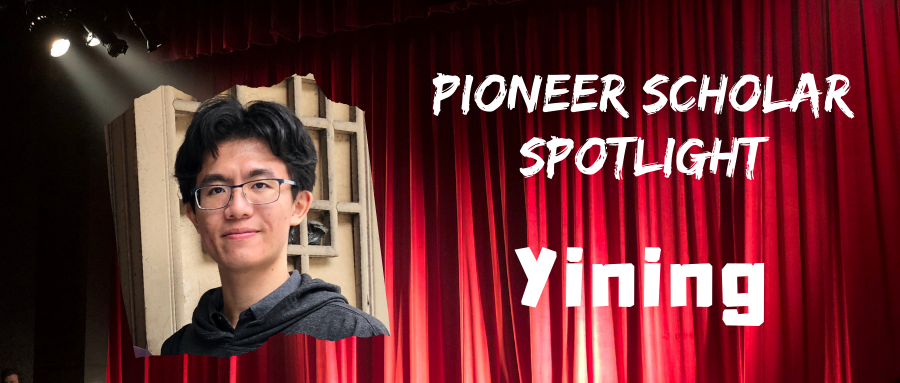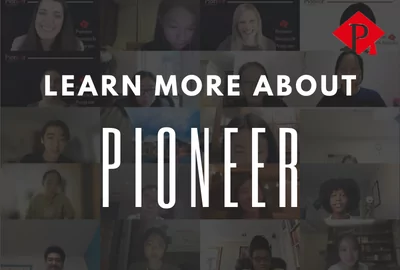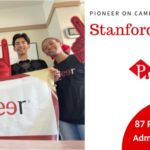“Especially during a global health crisis, I think is particularly valuable that we have the chance to have our online research guided by a professor and supervised by an organization like Pioneer.”
Pioneer Scholar Yining, from Shenzhen, China, is one of a select group of students who participated in the Pioneer Research Programs twice, the first time in Philosophy, and the second in Sociolinguistic Anthropology. The two experiences were quite different, and the combination provided Yining with a range of skills that would thoroughly prepare him for college studies.
Yining learned about Pioneer from reading positive reviews on social media platforms. “I thought this might be a very good chance for me to improve my research skills,” he said. “Though at first I was sort of just following the trend.” His was first assigned to a topic in Philosophy, a field that was new to him, and one he wasn’t sure whether he would enjoy. But it proved to be an extraordinarily illuminating experience. “My Pioneer professor did a tremendous job of getting me interested in the topic,” he said. “I was overwhelmed by what I learned. I have never learned so much in such a short amount of time.” And so the next year, Yining applied to the Pioneer Research Program again, this time in Anthropology.
The two fields gave Yining experiences in two very different kinds of research. For the Philosophy research paper, Yining noted that, “you have a collection of texts which form the primary substance of your research. So the bulk of your paper would be some very detailed textual analyses of your texts.” The Anthropology research, by contrast, involved gathering information from secondary sources, analyzing them, and drawing conclusions. “You have to research more widely”, he said, so that you can “buttress your claims.”
One thing proved similar for both programs. The process of deciding on a topic, doing the research, and writing the paper is always challenging but rewarding. “It’s a long piece of work. It’s 20 pages and it’s something of your own choosing, something you are passionate about and something for which you have to take the initiative.”
Yining recommends taking full advantage of Pioneer’s many resources. For his individual sessions with his professor, Yining would read widely, plan what he hoped to cover in each session, and prepare a PowerPoint slide with his list of questions. To review drafts of his work, he relied on the Pioneer Writing Center for “linguistic issues,” and discussed with his professor on more subject-oriented questions. His cohort was also of immense help to the process of his learning: peers who had “enormous passion for the discipline” expanded his horizons with their “own very different perspectives.”
The result of Yining’s hard work was a paper which he is sure had contributed to his acceptance at the University of Chicago, and which, as his professor suggested, might even be the basis for his future BS or MA thesis. Yining summarizes: “I think there’s no other educational program available to high school students that’s as meaningful as Pioneer.”


 Doing research is commonplace.
Doing research is commonplace.


